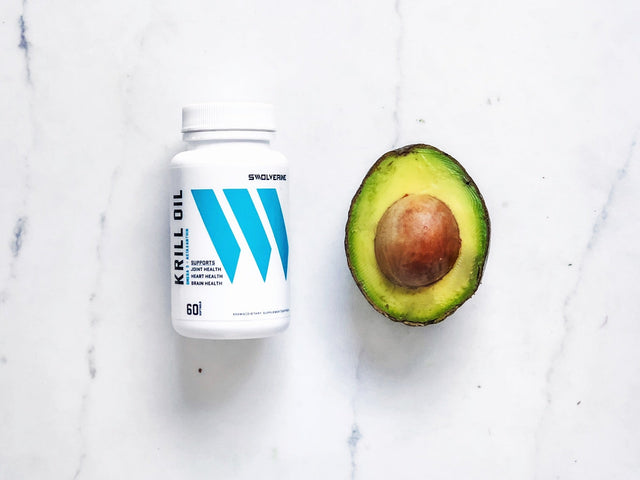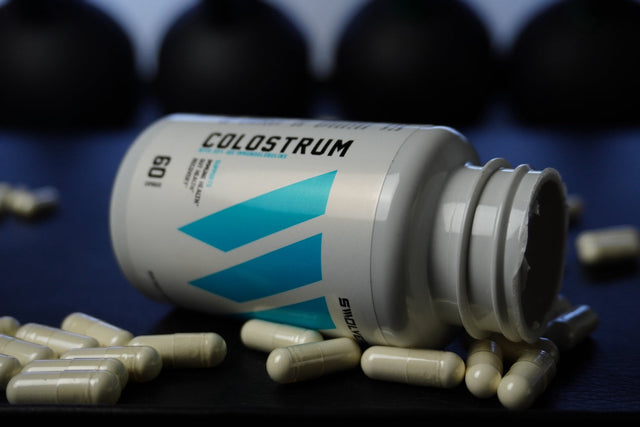Are you a woman looking to unlock the potential benefits of DHEA? You've come to the right place. In this ultimate guide, we'll explore how DHEA, short for dehydroepiandrosterone, can improve various aspects of women's health and well-being. Whether you're seeking to enhance your energy levels, maintain a healthy weight, or combat the signs of aging, DHEA may hold the key.
Known as the "fountain of youth" hormone, DHEA plays a crucial role in hormone production and regulation. By supplementing with DHEA, women may experience improvements in mood, sexual health, bone density, and even fertility. But it's not just about anti-aging; studies suggest that DHEA can also support cognitive function, cardiovascular health, and immune system function.
In this comprehensive guide, we'll delve into the potential benefits of DHEA for women, discuss the recommended dosage and safety considerations, and provide tips for choosing the right DHEA supplement. So, if you're ready to take control of your health and discover the transformative power of DHEA, let's dive in.
What Is DHEA and Its Role in the Body?
Understanding the Basics of DHEA
Dehydroepiandrosterone (DHEA) is a naturally occurring steroid hormone produced primarily by the adrenal glands, which are located above the kidneys. It acts as a precursor to both estrogen and testosterone, two essential sex hormones that regulate numerous functions in the body. As such, DHEA serves as a building block for hormonal synthesis and plays a vital role in maintaining hormonal balance throughout life.
DHEA levels peak in early adulthood and naturally decline with age, often contributing to symptoms such as fatigue, mood changes, and reduced libido, particularly in middle-aged women (Labrie et al., 2005). This decline can also influence metabolic health and immune function.
How the Body Uses DHEA
DHEA contributes to several key physiological processes:
-
Hormone production: Converts into androgens and estrogens, regulating reproductive health.
-
Metabolism: Assists in energy regulation and fat metabolism.
-
Immune support: Helps modulate immune response and inflammation.
-
Mood regulation: Participates in neurotransmitter production crucial for emotional well-being (Baulieu et al., 2000).
Understanding the multifaceted role of DHEA helps explain why this hormone is considered vital for wellness, especially as women navigate perimenopause and menopause.
The Benefits of DHEA for Women
Energy, Mood, and Emotional Stability
DHEA supplementation has been linked to improvements in energy levels and reduced fatigue, making it an appealing option for women experiencing midlife hormonal shifts. In clinical trials, women reported enhanced vitality, improved motivation, and better performance in daily activities (Kritz-Silverstein et al., 2008).
In addition, DHEA may help regulate mood and emotional well-being. Fluctuating hormone levels can contribute to irritability, depression, and anxiety, particularly during PMS and menopause. Research suggests DHEA has antidepressant and anxiolytic effects due to its impact on brain chemistry and neurotransmitter regulation (Schmidt et al., 2005).
Sexual Health and Libido
Aging and hormonal imbalances often result in reduced libido and sexual dissatisfaction. DHEA supplementation has been shown to support increased sexual desire and improved sexual function in women, particularly those experiencing menopausal symptoms. In a randomized controlled trial, postmenopausal women who took DHEA reported significant improvements in libido, lubrication, and sexual satisfaction (Cappelletti & Wallen, 2016).
How DHEA Supports Hormone Balance
Estrogen and Testosterone Regulation
DHEA functions as a precursor to both estrogen and testosterone, two critical hormones for women's health. As estrogen levels decline with age, symptoms such as hot flashes, bone density loss, and mood swings can worsen. DHEA supplementation may stimulate the body’s natural production of estrogen, helping to reduce the severity of menopausal symptoms (Labrie et al., 2009).
Testosterone is equally important for women—it influences muscle mass, mood, energy, and sexual desire. Supplementing with DHEA may help support healthy testosterone levels, which can improve libido, motivation, and overall well-being (Arlt et al., 1999).
The Impact of DHEA on Fertility and Reproductive Health
Ovarian Function and Egg Quality
DHEA has gained traction in the fertility space due to its potential to improve ovarian reserve and egg quality. For women with diminished ovarian reserve or those undergoing IVF, DHEA supplementation may help boost the number and quality of oocytes. Studies have shown that DHEA may enhance outcomes in assisted reproductive technologies by improving embryo quality and implantation rates (Barad & Gleicher, 2006).
Reducing Stress and Improving Mindset
The fertility journey can be emotionally taxing. DHEA may help buffer some of the psychological stress associated with trying to conceive by promoting hormonal stability and supporting mood regulation. In turn, this can help women experience a more positive outlook during treatments or natural conception attempts (Schmidt et al., 2005).
DHEA plays a multifaceted and essential role in women’s health. From regulating mood and supporting sexual health to enhancing fertility and balancing hormones, it offers promising benefits—especially for women navigating aging and reproductive transitions. However, supplementation should be approached carefully and ideally under the supervision of a healthcare provider, as hormonal therapies can have individual risks and responses.
Here’s your revised and SEO-optimized article on DHEA and its effects on menopause symptoms, with Header 1, Subheader 2, and in-text citations with linked sources. All original information is preserved, with improved formatting for readability and clarity.
DHEA and Its Effects on Menopause Symptoms
Supporting Women Through Hormonal Transitions
Menopause marks a significant biological transition often accompanied by symptoms such as hot flashes, mood swings, night sweats, and disrupted sleep. These symptoms largely stem from hormonal fluctuations, particularly the decline in estrogen levels. One emerging supplement of interest is Dehydroepiandrosterone (DHEA), a precursor hormone that the body can convert into estrogen and testosterone. As such, DHEA may help alleviate menopausal symptoms by restoring hormonal balance.
Studies suggest that DHEA supplementation can reduce the frequency and severity of hot flashes, one of the most common and distressing symptoms of menopause. According to research published in Climacteric, DHEA can increase circulating estrogen levels, which may account for these improvements (Labrie et al., 2009).
In addition, DHEA may help stabilize sleep-wake cycles by reducing night sweats and hormonal disruptions. Women who supplement with DHEA often report improved sleep quality and more restorative rest, which significantly enhances quality of life (Genazzani et al., 2003).
Mood Support During Menopause
Hormonal changes during menopause can also lead to increased anxiety, irritability, and depressive symptoms. DHEA influences neurotransmitters like serotonin and dopamine, which are directly involved in mood regulation. A randomized controlled trial published in Archives of General Psychiatry found that DHEA improved depressive symptoms in midlife individuals by supporting neuroendocrine balance (Schmidt et al., 2005).
By promoting emotional stability and cognitive clarity, DHEA can help women better navigate the psychological challenges of menopause, offering a sense of empowerment and control during a time of physical change.
The Potential Anti-Aging Benefits of DHEA
Skin Health and Collagen Support
Often called the "fountain of youth" hormone, DHEA is known for its anti-aging properties. As levels naturally decline with age, skin becomes thinner, drier, and more prone to wrinkles. Supplementing with DHEA may help reverse age-related changes in skin structure, including improvements in hydration, elasticity, and thickness.
A study in Dermato-Endocrinology reported that topical and oral DHEA improved collagen production and skin health in postmenopausal women, reducing visible signs of aging (Labrie et al., 2006).
Cognitive Function and Mental Clarity
DHEA has also been linked to enhanced cognitive performance, particularly in aging adults. Some studies indicate improvements in memory, focus, and processing speed. A review in Ageing Research Reviews noted that DHEA supplementation could help counteract age-related mental fog, though more research is needed to confirm long-term efficacy (Wolf et al., 2011).
Together, these benefits highlight DHEA’s role in supporting both physical and mental youthfulness, contributing to overall vitality and quality of life.
DHEA’s Impact on Bone Health
Reducing Osteoporosis Risk
As estrogen declines, bone mineral density (BMD) can decrease, putting women at greater risk for osteoporosis and fractures. DHEA has been shown to stimulate osteoblast activity, which is essential for new bone formation, while also suppressing osteoclasts, which break down bone tissue.
Clinical trials have demonstrated that DHEA supplementation can increase spinal BMD in postmenopausal women, especially when combined with calcium and vitamin D (Weiss et al., 2009).
Improving Calcium Absorption
DHEA may also enhance intestinal calcium absorption, which is critical for maintaining strong bones. By improving the body's calcium utilization, DHEA acts as a complementary therapy for bone health, potentially reducing the risk of fractures and skeletal fragility as women age.
The Role of DHEA in Mental Well-Being and Cognitive Function
Mood Enhancement and Hormonal Stability
DHEA plays a significant role in regulating mood and emotional resilience. Its impact on brain chemistry, particularly through neurotransmitters like GABA, serotonin, and dopamine, makes it an attractive option for addressing anxiety and depression linked to hormonal shifts.
Multiple studies have shown that DHEA can boost mood and mental outlook, helping women feel more emotionally stable and present (Bloch et al., 1999).
Cognitive Clarity and Focus
In addition to emotional health, DHEA has been studied for its effects on cognitive function, particularly in older adults. Supplementation may support memory retention, attention span, and executive function, although results vary among individuals and further studies are needed for conclusive recommendations (Kritz-Silverstein et al., 2008).
How to Safely Supplement with DHEA
Start Low and Monitor Regularly
Although DHEA offers a wide array of benefits, individualized dosing and medical supervision are critical. Recommended dosages typically range from 10 to 50 mg daily, but it’s essential to start with the lowest effective dose and work with a healthcare provider to monitor hormone levels regularly.
Excessive DHEA can lead to unwanted side effects, such as acne, oily skin, hair thinning, or mood fluctuations. Ongoing monitoring helps maintain hormonal balance and safety (Arlt et al., 1999).
Choose High-Quality Supplements
Look for third-party tested DHEA supplements from reputable manufacturers that ensure potency, purity, and accurate labeling. Avoid products with unnecessary fillers, and choose clinically-dosed options backed by published research.
DHEA offers a multi-dimensional approach to supporting women through menopause and beyond. From easing hot flashes and stabilizing mood to promoting youthful skin and bone health, it may serve as a valuable addition to a woman’s wellness routine. As with any hormone therapy, it’s best used under medical supervision to ensure safe and effective results.
Swolverine’s DHEA (Dehydroepiandrosterone) is a naturally occurring hormone precursor that plays a crucial role in supporting healthy testosterone and estrogen levels, vitality, and overall well-being. As we age, DHEA production declines, which can impact muscle mass, energy levels, mood, and metabolism.
Each 100mg veggie capsule provides a clinical dose of pure, high-quality DHEA
Conclusion: Is DHEA right for you?
Navigating the complexities of women's health can be challenging, especially when it comes to hormonal balance and age-related changes. DHEA holds the potential to offer a range of benefits, from enhancing energy and mood to supporting reproductive health and bone density. However, it's essential to approach DHEA supplementation thoughtfully and with guidance from a healthcare professional.
Before deciding if DHEA is right for you, consider your individual health goals, current hormonal balance, and any existing health conditions. Consulting with a healthcare provider can help you assess whether DHEA supplementation is appropriate for your specific situation and guide you in determining the right dosage and formulation.
In conclusion, DHEA may provide a pathway for women seeking to improve their overall health and well-being. By understanding its potential benefits and how it interacts with the body, you can make informed decisions about your health journey. Whether you're looking to boost energy levels, improve mood, or support reproductive health, DHEA may be a valuable addition to your wellness toolkit.













